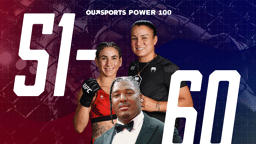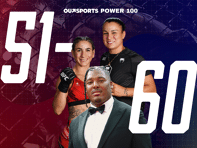Madison Doucette, goalkeeper for the U.S. women’s lacrosse team that won the under-19 gold medal last year, hates the notion of being known as a gay athlete, yet she accepts why the distinction is necessary.
“As proud as I am to be who I am — to represent my country as a gay athlete — I hate that I have to,” Doucette writes in a coming out essay in US Lacrosse Magazine. “That may be a jarring statement, and maybe hate is too intense a word, but the sentiment remains true.
“We are athletes on the field, and so much more beyond, but whatever identities we have do not define our athletic performance. In an ideal world, it doesn’t matter who you love, the color of your skin, the religion you follow, or where you sit on the gender spectrum.
“Yet, as strongly as I feel about this perfect, hypothetical world, I am not naive. We are not there yet. Not as a culture, a country, a world. Until acceptance is the baseline, it takes some of us stepping up to normalize what makes us ‘different.’”
That’s well said and true — no one likes being known as the “gay (fill in the sport) player” — yet visibility is important to encourage more LGBTQ people in sports to come out. Since outing athletes is unacceptable, they have to publicly declare their sexual or gender identity for the public to realize LGBTQ athletes exist.
Doucette has found acceptance in her coming out journey — I love her dad telling her that “You can date a girl, guy, whomever, just don’t date a loser” — from high school in West Chester, Pennsylvania, to playing for Northwestern and the U.S. national team.
In her terrific essay, she closed with a challenge to the lacrosse community.
“Our sport is ever changing and growing. As rules evolve every year and we set precedents on how niche sports grow on an international stage, let us do the same on efforts for diversity and inclusion. Lacrosse is a game everyone should play, regardless of identity.
“To the teammates, friends, family members, and peers: If it hasn’t already, the culture starts now. Inclusivity is rooted in the support of all, whether members of a community or allies. Make your teams, families and communities inclusive places. Be accepting and hold everyone accountable.
“Most importantly, to the players that may be where I was just a few years ago: It is going to be OK. Be proud of who you are and where you are.”





































